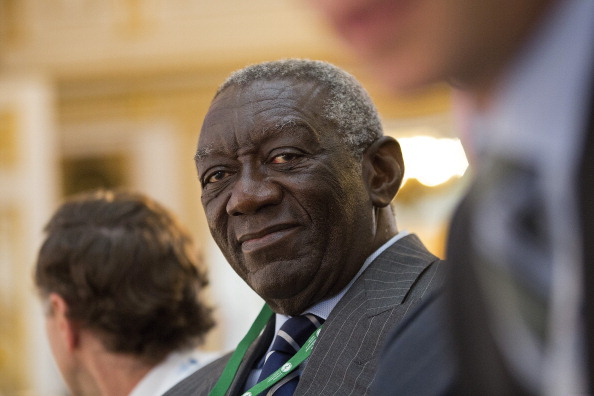His Excellency John Kufuor, Former President of Ghana and Special Envoy for the Global Network for Neglected Tropical Diseases
Two decades ago, a disease called trachoma threatened to blind 2.8 million people in my home country. Last year, the World Health Organization announced Ghana had eliminated trachoma, after five consecutive years of zero trachoma cases. Eliminating trachoma and Guinea worm disease are perhaps two of our country’s greatest achievements, yet records show almost 12 million Ghanaians went untreated for curable Neglected Tropical Diseases (NTDs) in 2017.
NTDs are a group of diseases that represent a leading cause of blindness and disfigurement in Africa. More than a third (39%) of all cases worldwide occur on this continent, and they disproportionately affect the poorest members of society. NTDs affect the ability of our children to go to school and gain an education, prevent workers from earning a living and tie up valuable country resources.
As their name suggests, NTDs have not always taken top priority in Africa, overshadowed by more high-profile diseases like HIV/AIDS, malaria and tuberculosis. However, the cost of treatment and the opportunity to make an impact on the prevalence of NTDs is comparatively low. If we don’t give equal weight to treating these diseases efforts to eliminate them will be thwarted.

Across Africa, this challenge must be embraced by politicians, policy makers and decision makers. I urge my fellow leaders to fast-track the elimination of NTDs so our economies can prosper and so citizens can live without fear of becoming blind, disfigured or ostracized by their peers. Adequate domestic funding and policy is a crucial first step of course, however governments do not stand alone in this. More and more private companies are demonstrating their willingness to help combat some of society’s biggest challenges, and I encourage country leaders to collaborate with the private sector to take advantage of their skills, experience and financial support.
I also maintain that without active members of society mobilising a grassroots movement that holds us accountable and provides crucial insights from the ground, our efforts will not have the desired impact. Leaders and businesses must therefore work closely with local communities and civil society throughout the decision-making process to achieve our objective of elimination by 2030.
Today, I firmly believe that our goal of controlling and eliminating NTDs by the end of the decade is in sight. We have all the tools we need to eliminate NTDs: five of these diseases can be prevented with preventive chemotherapy, and pharmaceutical companies, through the World Health Organisation, is donating and mobilising the drugs we need. Accurate data represents one of our greatest assets. The Expanded Special Project for Elimination of Neglected Tropical Disease (ESPEN) portal now enables national control programs to access the latest, sub-national data on NTD prevalence to target interventions where they’re needed most.
Where there is poverty, NTDs are often an accepted part of life. But this doesn’t have to be the case. I am supporting Speak Up Africa’s #NotoNTDs program because I believe no man, woman or child should have to experience these diseases and have their future taken away from them by something which is entirely preventable and treatable. Of course, key to decreasing NTD prevalence is improving sanitation conditions for millions of people across the continent. If local authorities improve sanitation facilities and we take steps to better educate people on sanitation practices, we will contribute to reducing the transmission of these, and other, diseases. I invite others to join me on my pursuit for a healthy Africa – together, we can all say no to NTDs and stop African citizens from suffering from these appalling diseases. Our health is one of the best investments we can make.
